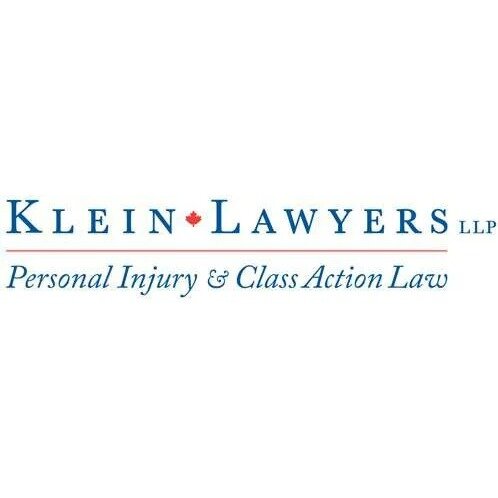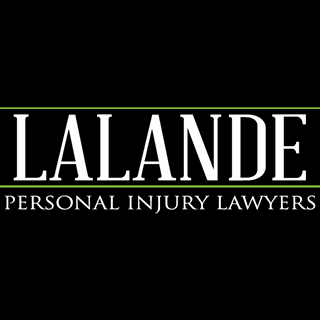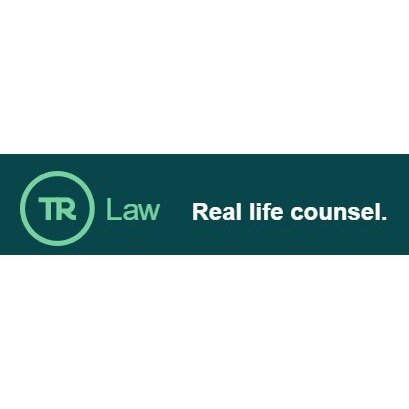Best Personal Injury Lawyers in Canada
Share your needs with us, get contacted by law firms.
Free. Takes 2 min.
Or refine your search by selecting a city:
List of the best lawyers in Canada
About Personal Injury Law in Canada
Personal Injury Law in Canada is a legal domain that deals with situations where an individual suffers harm due to the negligence or intentional acts of another party. The primary objective is to allow the injured party to seek compensation from the responsible party. Personal injury cases can involve physical, emotional, or psychological harm arising from various incidents such as car accidents, slip and falls, medical malpractice, and defamatory statements.
Why You May Need a Lawyer
There are several common situations where the expertise of a personal injury lawyer can be invaluable. These include:
- **Complex Legal System**: Navigating the legal system can be daunting, and a lawyer can help ensure that all legal procedures are properly followed.
- **Insurance Negotiations**: Insurers often attempt to settle claims for less than they are worth. A lawyer can negotiate on your behalf to ensure a fair settlement.
- **Determining Liability**: Sometimes, identifying the liable party in personal injury cases can be complicated, especially if multiple parties are involved. A lawyer can help establish who is at fault.
- **Assessment of Damages**: A lawyer can assist in calculating the full extent of your damages, including potential future losses, to ensure you receive fair compensation.
Local Laws Overview
The legal framework for personal injury in Canada is largely governed at the provincial and territorial levels, although there are federal laws that may apply in certain cases. Key aspects include:
- **Statute of Limitations**: Each province has specific time limits within which a personal injury claim can be filed. For instance, Ontario generally allows two years from the date of injury.
- **Fault and Liability Systems**: Provinces may utilize different systems such as no-fault insurance schemes or tort-based systems to address liability and compensation.
- **Contribution and Comparative Negligence**: In cases where the plaintiff is partially at fault, their compensation may be reduced proportionately according to the degree of fault.
Frequently Asked Questions
1. What constitutes a personal injury case?
A personal injury case arises when an individual suffers harm due to another party's negligence or intentional misconduct.
2. How long do I have to file a personal injury claim in Canada?
This depends on the province, but most have a two-year limitation period from the date of the incident.
3. What types of compensation can I receive?
Compensation may cover medical expenses, lost income, pain and suffering, and future loss of earnings.
4. Do I need to go to court to settle my claim?
Not necessarily. Many personal injury claims are settled out of court through negotiations.
5. How is liability determined in a personal injury case?
Liability is established by demonstrating that the defendant was negligent and that their actions directly caused the plaintiff's injury.
6. Can I handle my personal injury claim without a lawyer?
While possible, it is generally not advisable due to the complexities involved in personal injury law.
7. What is the role of an insurance company in personal injury cases?
Insurers evaluate claims, negotiate settlements, and provide compensation as per the policy terms and relevant law.
8. How much does it cost to hire a personal injury lawyer in Canada?
Many personal injury lawyers work on a contingency fee basis, meaning they earn a percentage of the settlement once the case is won.
9. What should I do immediately after sustaining an injury?
Seek medical attention, document the incident, gather evidence, and consider speaking to a lawyer.
10. Can a personal injury claim include emotional or psychological harm?
Yes, claims can include non-physical injuries such as emotional distress or trauma, depending on the circumstances.
Additional Resources
Several resources and organizations can provide support and information for personal injury cases in Canada, including:
- **Your Province's Legal Aid Office**: For legal advice and assistance for those in financial need.
- **Law Society of Your Province**: For lawyer referrals and legal information.
- **Canadian Bar Association**: Offers resources and information relevant to personal injury law.
- **Insurance Bureau of Canada**: Provides insights into the insurance aspects of personal injury claims.
Next Steps
If you believe you need legal assistance for a personal injury issue, consider the following steps:
- **Document Everything**: Keep a detailed record of the injury and related incidents.
- **Consult a Lawyer**: Reach out to a personal injury lawyer for an initial consultation to discuss the merits of your case.
- **Understand Your Rights**: Make sure you are fully aware of your rights and any potential compensation you might be entitled to.
- **Evaluate Legal Options**: Consider the advice provided by your lawyer and decide on the best legal strategy for your situation.
Lawzana helps you find the best lawyers and law firms in Canada through a curated and pre-screened list of qualified legal professionals. Our platform offers rankings and detailed profiles of attorneys and law firms, allowing you to compare based on practice areas, including Personal Injury, experience, and client feedback.
Each profile includes a description of the firm's areas of practice, client reviews, team members and partners, year of establishment, spoken languages, office locations, contact information, social media presence, and any published articles or resources. Most firms on our platform speak English and are experienced in both local and international legal matters.
Get a quote from top-rated law firms in Canada — quickly, securely, and without unnecessary hassle.
Disclaimer:
The information provided on this page is for general informational purposes only and does not constitute legal advice. While we strive to ensure the accuracy and relevance of the content, legal information may change over time, and interpretations of the law can vary. You should always consult with a qualified legal professional for advice specific to your situation.
We disclaim all liability for actions taken or not taken based on the content of this page. If you believe any information is incorrect or outdated, please contact us, and we will review and update it where appropriate.
Browse personal injury law firms by city in Canada
Refine your search by selecting a city.
















